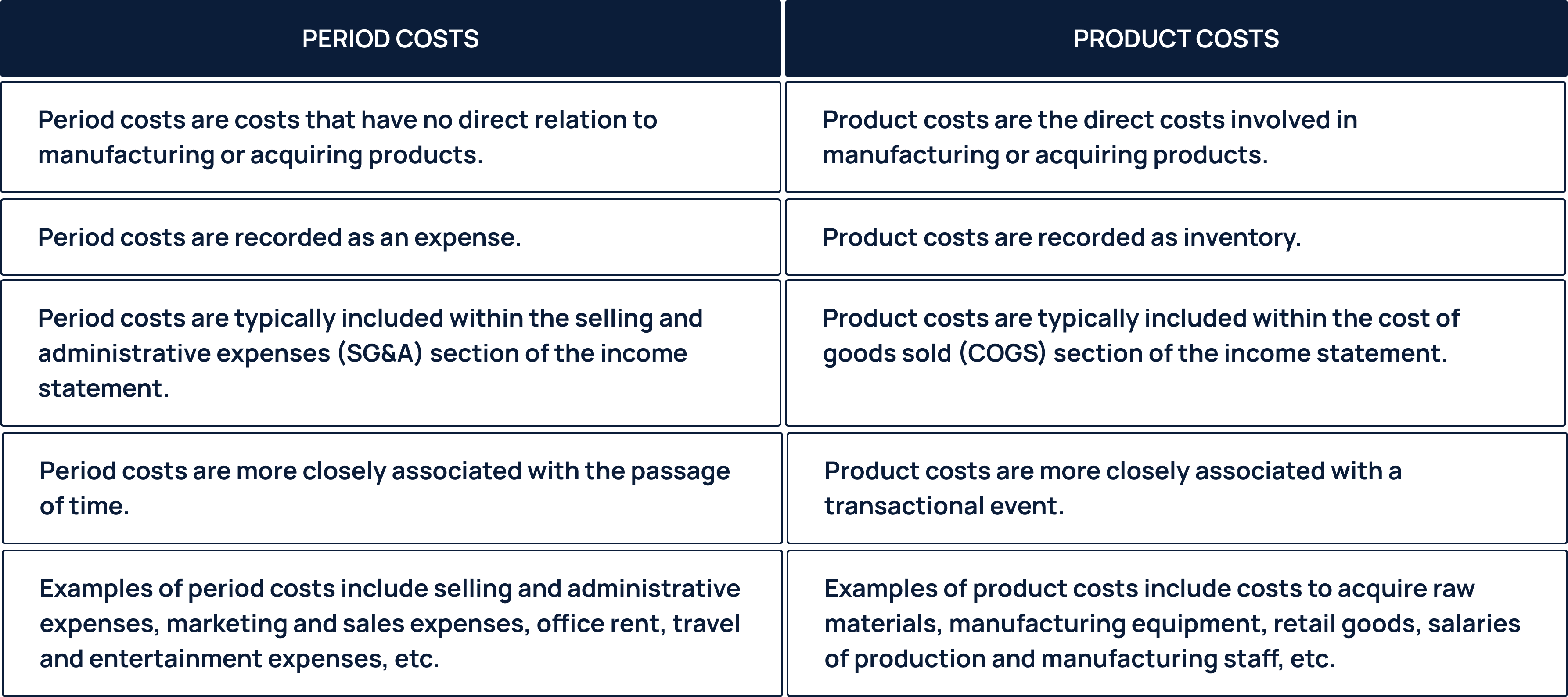Is Sales Commission a Period Cost?


In this blog, we’ll study the concepts of period and product costs and look at the differences between the two. We’ll also see which of these two costing categories sales commissions fall under.
After reading the title, some of you would probably wonder: What on earth are period costs and product costs?
Simply put, these are the two main types of costs associated with running a business.
So, is sales commission a period cost?
Yes!
To get a more detailed explanation, let’s dive right in.
In this article, I’ll explain if sales commissions are considered a period or product cost. And by the end of this blog, you’ll have a clear idea about these two crucial accounting terms.
Period costs are costs that have no direct relation to manufacturing or acquiring a product.
Instead, period costs are associated with all non-manufacturing and non-production related activities, such as office overheads and SG&A (Selling, General & Administrative) expenses.
You can think of period costs are costs incurred during a given ‘period’ rather than a one-time cost. Since period costs are always recorded as an expense in income statements, they are sometimes referred to as 'period expenses’.
Examples of period costs include:
Product costs are the costs involved in manufacturing or acquiring a product.
For instance, if you run a manufacturing business, product costs would include the cost of raw materials, labor, manufacturing-related overheads like rent and utilities, etc.
On the other hand, if you’re a retailer, product costs would involve the money you pay your suppliers to buy goods and any additional costs involved in bringing your goods to the market.
Until a product is sold, the product costs involved with that product are recorded as inventory on the balance sheet. Once the product is sold, the related costs are moved from inventory to cost of goods sold (COGS) on the balance sheet.
Since product costs are essentially used to calculate the inventory value, they are also referred to as ‘inventoriable’ costs (not a word, I know, but your accounting team will be very familiar with it).
Examples of product costs include:
Now for the million-dollar question: Are sales commissions a period cost or a product cost?
Read: Average sales commission rates for different industries
If you’ve reached this far in the article, you probably already know the answer by now. However, let’s learn about it in more detail.
Sales commissions are always considered a period cost.
Why?
Because salespeople are not directly involved in manufacturing or acquiring your product. Instead, they are responsible for selling your product once it’s ready for the market.
That is why your sales reps’ salaries (including their commissions) fall under period costs. In contrast, the salaries of employees working at your production plant, for instance, would fall under product costs.
For your final takeaway, let’s tabulate the key differences between period costs and product costs:

Read: Commission vs. bonus - a comparison
Period costs and product costs are both integral to the running of any business.
Knowing how to correctly categorize your expenses under these two costing umbrellas is vital if you want to better understand your cash flows.
I hope this article has helped you in that regard. And I hope you find a way to implement the knowledge you gleaned here in your next costing strategy.